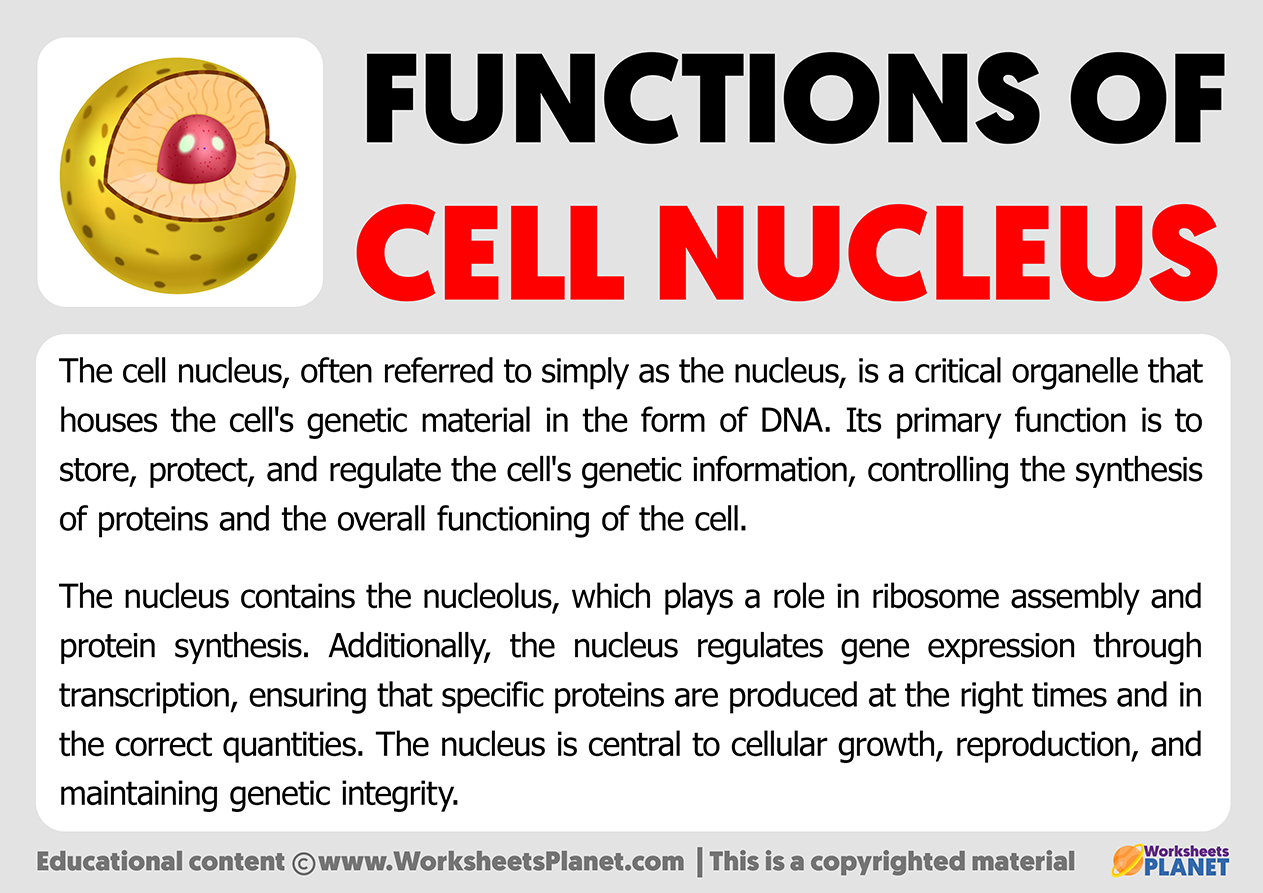The cell nucleus, often referred to simply as the nucleus, is a critical organelle that houses the cell’s genetic material in the form of DNA. Its primary function is to store, protect, and regulate the cell’s genetic information, controlling the synthesis of proteins and the overall functioning of the cell.

The nucleus contains the nucleolus, which plays a role in ribosome assembly and protein synthesis. Additionally, the nucleus regulates gene expression through transcription, ensuring that specific proteins are produced at the right times and in the correct quantities. The nucleus is central to cellular growth, reproduction, and maintaining genetic integrity.

